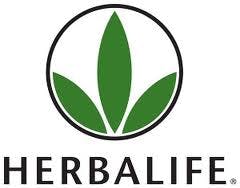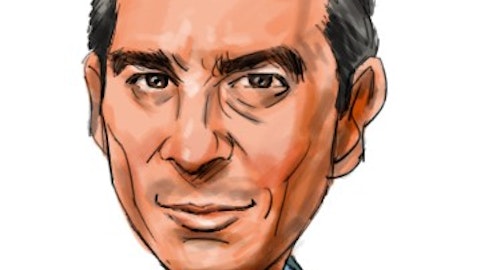The billionaire showdown is almost resonant to the Herbalife Ltd. (NYSE:HLF) fiasco that unfolded over the last couple of months. Bill Ackman still remains convinced that Herbalife’s business model is unsustainable, while Carl Icahn believes the contrary. Whether Herbalife Ltd. (NYSE:HLF) survives or not is another topic for debate, but I’m confident that for its part, Nu Skin Enterprises, Inc. (NYSE:NUS) has been beaten down for no reason and investors have a chance to capitalize on the opportunity.

Last year, Nu Skin Enterprises, Inc. (NYSE:NUS) ran into trouble when independent research by Citron claimed that the company operates illegally under an multilevel marketing (MLM) structure in China. The management stepped up and explained that it had procured all the necessary permissions and approvals from the Chinese authorities before beginning its operations in the country.
The report by Citron also claimed that the U.S. Food and Drug Administration rejected one of the company’s new products, and yet Nu Skin Enterprises, Inc. (NYSE:NUS) was going ahead with the distribution of the item. The management explained that its “new product” was pending approval, which gave Nu Skin little reason to expect a rejection.
Going by FTC’s definition:
“Multi-level marketing (MLM) is a purported income opportunity, in which persons recruited into a pyramid of participants make on-going purchases of products and services, and recruit others to do the same, and they still others, etc. – in an endless chain of recruitment and personal consumption, in order to qualify for commissions and bonuses and to advance upward in the hierarchy of levels in the pyramid. Product purchases become the means of disguising or laundering investments in what is in fact a product-based pyramid scheme.”
Upon close reading, its not hard to figure out that Nu Skin Enterprises, Inc. (NYSE:NUS) is not classified as an MLM. The company does not have a pyramid structure based on commissions, and its distributors get their commissions on every sale — just like any other marketing company. Furthermore, unlike other direct selling companies, Nu Skin hires distributors to sell its products.
These distributors are entitled to healthcare and retirement packages, which are common in almost all marketing companies. This creates a sustainable growth trajectory, without having the need to aggressively expand.
Avon Products, Inc. (NYSE:AVP) and Herbalife Ltd. (NYSE:HLF), however, comfortably fit into the definition. Though it’s unfair to treat Avon Products and Herbalife Ltd. (NYSE:HLF) as absolute MLM scams, it cannot be denied that these companies need to constantly grow in order to sustain their existence.
So where is Nu Skin headed?
Nu Skin has close to 550,000 distributors across 53 countries and has been reporting stellar growth in the recent quarters. It manufacturers and markets skin care and anti-aging creams, and has a major presence in China.
According to a report, the healthcare industry is expected to grow at nearly 15% annually, which is up from 13.9%, through 2020. Nu Skin Enterprises, Inc. (NYSE:NUS) could reap its share of rewards, but the Street’s pessimism regarding MLMs has taken it down.
Analysts estimate the average annual EPS growth at Herbalife Ltd. (NYSE:HLF), Avon Products and NuSkin to be around 15%, 21% and 11%, respectively, but that’s a best-case scenario. Just like any marketing company, the negative publicity surrounding Nu Skin could go on to harm its market reputation and market share.
The company needs to repair its negative image, which could take time, and towering re-branding costs. Until that happens, I believe that investors should stay distant from Nu Skin Enterprises, Inc. (NYSE:NUS).
The article What to Make of Direct Selling? originally appeared on Fool.com and is written by Piyush Arora.
Copyright © 1995 – 2013 The Motley Fool, LLC. All rights reserved. The Motley Fool has a disclosure policy.



